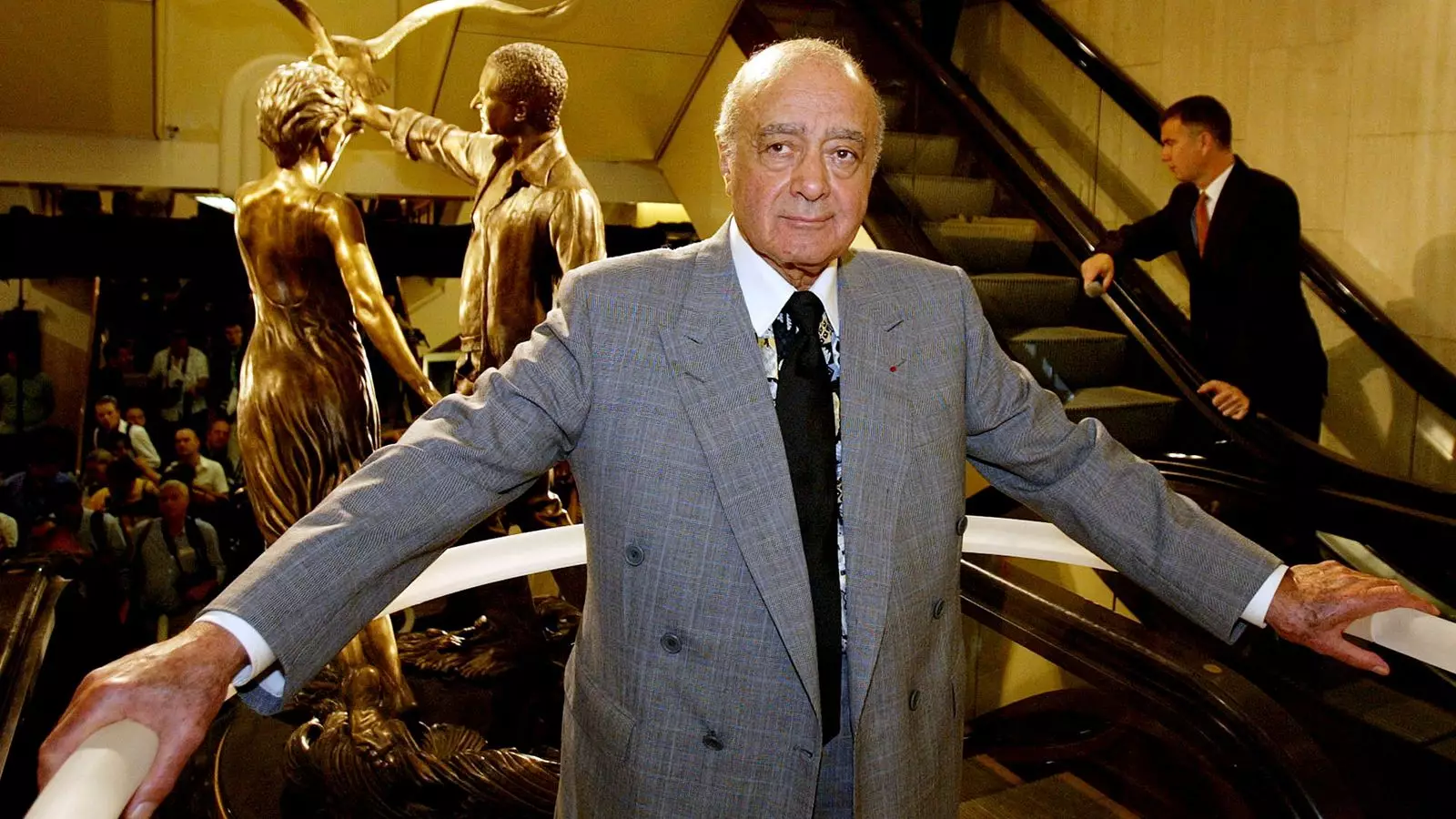The shrouded past of Mohamed Al Fayed is gradually being illuminated by recent allegations that depict him as a manipulative figure with a penchant for exploiting vulnerable individuals. In a press conference held in London, attorneys representing women who have accused Al Fayed of sexual abuse characterized him as a “predator” and “monster” whose actions flourished within a permissive environment at Harrods, the iconic department store he once owned. Legal representative Dean Armstrong KC highlighted parallels between Al Fayed and notorious figures such as Jimmy Savile and Jeffrey Epstein, asserting that the allegations against him unveil a “vast web of abuse” that taps into systemic issues of power and silence.
Allegations have emerged from over 20 women, many of whom were young employees at Harrods. One of the survivors, identified only as Natacha, recounted her traumatic experience as a naive 19-year-old lured to London under the pretense of employment, who ultimately found herself at the mercy of a man she described in chilling terms. Her harrowing encounter—a failed sexual assault in Al Fayed’s private office—raises questions not only about individual culpability but about the corporate culture that allowed such misconduct to persist.
The legal representatives acting on behalf of the alleged victims do not merely pin the blame on Al Fayed. They assert that Harrods itself bears significant responsibility for creating an environment conducive to such abuses. Speaking candidly about the circumstances leading to the allegations, the legal team detailed how Harrods’ operational frameworks failed to protect its employees, particularly those who were young and impressionable. The assertion that victims were specifically selected for roles involving private medical examinations, including sexual health screens, illustrates a disturbing level of intrusion into their private lives that bordered on exploitation.
Armstrong vehemently condemned both Al Fayed and Harrods for what he termed an “abject failure of corporate responsibility.” His statements draw attention to a broader issue within corporate structures where power dynamics create opportunities for abuse, leaving victims without recourse or support. As Harrods attempts to reconcile with the past, the legal team seeks justice not just for the women involved, but aims to rewrite policies that may prevent similar exploitation in the future.
Mohamed Al Fayed’s notoriety is not limited to the serious allegations against him but also encompasses his controversial past, including his fight against the official narrative surrounding his son Dodi’s death alongside Princess Diana in 1997. That episode not only fueled conspiracy theories but also solidified his position as a polarizing figure capable of evoking intense emotional responses across the public spectrum. His control over Harrods from 1985 to 2010 has been both celebrated and criticized, but the recent allegations plunge his legacy into a more sinister territory.
Despite generating significant wealth and influence, his actions as portrayed by the accusers reveal an insatiable lust for power that extends beyond mere financial gain. This delineation of personal greed intertwined with systemic abuse calls into question the ethical standards upheld by the very institutions that enabled his rise.
In light of these disturbing revelations, Harrods has made an effort to distance itself from Al Fayed’s actions, issuing a statement that expresses regret over the suffering endured by his alleged victims. The department store’s leadership acknowledges that they failed significantly during Al Fayed’s tenure, and they have stated their commitment to establishing a safer environment for all employees moving forward. This commitment encompasses a directive to create transparent channels for former employees to come forward with their experiences.
However, mere apologies and changes in corporate policy will not suffice. Harrods must place emphasis on cultivating a culture of safety and respect that prioritizes employee welfare above profit and prestige. As public awareness grows and more victims find their voices, it is crucial for both Harrods and similar institutions to recognize that true change requires more than just rebranding. It demands accountability, integrity, and a commitment to become part of the solution against predatory behavior.
The allegations against Mohamed Al Fayed are indicative of broader societal issues concerning gender-based violence and the abuse of power. As these cases come to light, they reaffirm the importance of listening to victims and demanding accountability from those in positions of authority. This moment serves as a crucial turning point—not just for the victims seeking justice but for a society that must confront its own shortcomings. Whether or not Al Fayed’s legacy can be rehabilitated remains to be seen; what is clear, however, is the urgent need for robust mechanisms that protect the vulnerable and hold the powerful accountable.

Leave a Reply